Sadly, we live in a litigious society. Lawyers love to muck up the court system with filings, paperwork and lawsuits. While some are necessary and lawyers are definitely an integral part of our criminal justice system, often, lawyers just go crazy with their lawsuits.
Such is the case with a class-action lawsuit filed against Ford Motor Company stating that Ford has false fuel-economy ratings for 2017-2019 Ford F-150 and the 2019 Ford Ranger. This is in addition to the current, unsettled class-action lawsuit against Ford over the frozen door latch malfunction.
According to information on the public website classaction.org:
Ford lists the Ranger’s fuel economy at 21 miles per gallon (mpg) city and 26 mpg highway when configured as a 4x2 truck. The lawsuit claims, however, that at least one independent test found the Ranger’s highway mileage to be just 19.5 miles per gallon on average. This, the case claims, amounts to a bad deal for consumers. From the complaint:
“The fuel economy of the 2019 Ford Ranger advertised by Ford has not been consistent with reports by independent third parties and consumers. For example, after taking the 2019 Ford Ranger on a 1,000-mile road trip, one automobile writer reported an average of 19.5 miles per gallon while on the highway…The discrepancy between the fuel economy numbers promulgated by Ford and those reported by consumers will likely cost consumers thousands of dollars more in fuel costs over the life of Class Vehicles and result in increased vehicle pollution—neither of which was bargained for by consumers at the time of purchase.”
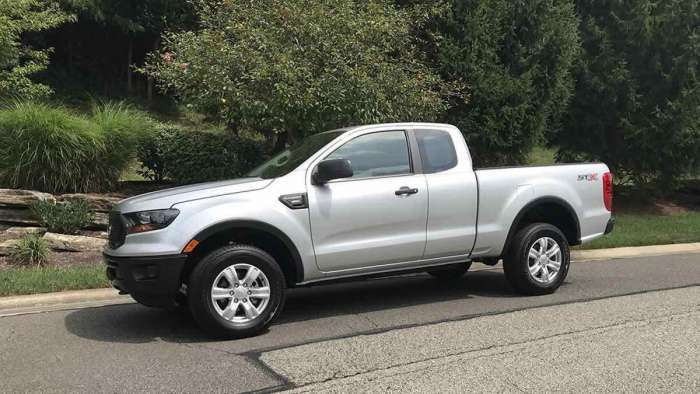
Is Ford Guilty of Lying About Fuel Economy on F-150 and Ranger?
Lying a strong word. The word “estimated” is a big factor here. Fuel economy, as gauged by the Environmental Protection Agency (EPA), is not an exact science. So many variables can affect fuel economy for the positive or the negative. Thus, the word “estimated” is used across all auto manufacturers and they cannot be taken literally.
Other similar lawsuits to this one against Ford have been kicked due to the loose meaning of the word estimated. The EPA has come to auto manufacturers’ defense during these lawsuits. On more than one occasion, the EPA backs up the fuel economy estimates as just that – estimates, not guarantees.
In the past the EPA has defended auto makers by saying: “ratings are a useful tool for comparing the fuel economies of different vehicles, but may not accurately predict the average miles per gallon you will get.”
A line from the lawsuit specifically insinuates that Ford was deceptive with their fuel ratings:
“The discrepancy between the fuel economy numbers promulgated by Ford and those reported by consumers will likely cost consumers thousands of dollars more in fuel costs over the life of Class Vehicles and result in increased vehicle pollution—neither of which was bargained for by consumers at the time of purchase.”
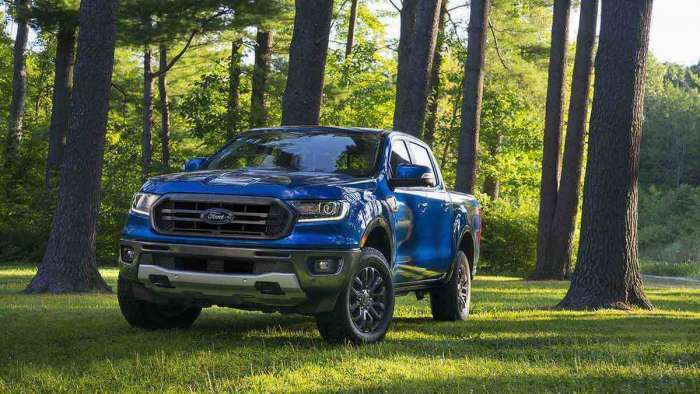
Was Ford Aware of Any Fuel Discrepancies with F-150 or Ranger?
The use of “defeat devices” has been used on more than one occasion by various automotive manufacturers. Likewise, the use of various fuel-rating testing methods like coasting help to pad their EPA numbers. While defeat devices are not allowed, the coasting method or coastdown method is widely used and accepted by the EPA. Ford says no defeat device of any kind was used for these or any vehicles.
The lawsuit in question seems to want to play federal regulator against Ford and all auto manufacturers. While that might seem okay, most judges will rule against such motions and that will only work against this class-action case. Working in favor of this lawsuit is that Ford publicly admitted to knowing about concerns, internally, over their emissions certification process.
According to the lawsuit: In its annual report filed with the SEC on February 21, 2019, Ford indicated that "the Company has become aware of a potential concern involving its U.S. emissions certification process"and that the Company" cannot provide assurance that it will not have a material adverse effect on[Ford]."
At the time, Ford released the following statement:
“In September, a handful of employees raised a concern through our Speak Up employee reporting channel regarding the analytical modeling that is part of our U.S. fuel economy and emissions compliance process.
At Ford, we believe that trust in our brand is earned by acting with integrity and transparency. As part of this, we have a process for looking at how we perform and behave in our broad and complex company.
As a result of the concern, we have taken a number of actions. Specifically:
• We have hired an outside firm to conduct an investigation into the vehicle road load specifications used in our testing and applications to certify emissions and fuel economy.
Road load is a vehicle-specific resistance level used in vehicle dynamometer testing, including for fuel economy ratings and emissions certifications. Road load is established through engineering models that are validated through vehicle testing, including physical track tests referred to as coastdown testing.
• Ford has retained independent industry technical experts as part of our investigation team.
• We are hiring an independent lab to conduct further coastdown testing as part of our investigation.
• Ford also is evaluating potential changes to our road-load modeling process, including engineering, technical and governance components.
• This week, we voluntarily shared these potential concerns with Environmental Protection Agency and California Air Resources Board officials.
The investigation and potential concerns do not involve the use of defeat devices in our products. At this time, there’s been no determination that this affects Ford’s fuel economy labels or emissions certifications.
We plan to work with regulators and the independent lab to complete a technical review. As part of our review, we have identified potential concerns with how we calculate road load. The first vehicle we are evaluating is the 2019 Ranger; we are assessing additional vehicles as well.
As always, we strive to be transparent with our customers, employees, dealers, shareholders and other stakeholders. We understand how important it is to all audiences that we thoroughly yet swiftly complete this investigation.”
This lawsuit seems frivolous in nature to me. It’s a money grab by lawyers, more than anyone else. And given Ford's difficult financial year they've had, this just feels like piling on the Blue Oval to me. If you buy a vehicle thinking you’ll get the exact fuel economy listed on the window sticker, you’re pretty naïve. Conversely, auto makers like Ford do need to be 100% transparent with their fuel economy and do an overall better job of true fuel testing, in less-than-pristine conditions.
In short, auto manufacturers need to drive and test their vehicles just as consumers will, which means cool it with the coastdown method. Then, and only then, will there be legitimate, accurate EPA ratings.
What do you think about this lawsuit? Is anyone experiencing big discrepancies on the fuel economy of their truck? Leave me a comment and maybe I will do a follow up story to this.
Jimmy Dinsmore has been an automotive journalist for more than a decade and been a writer since the high school. His Driver’s Side column features new car reviews and runs in several newspapers throughout the country. He is also co-author of the book “Mustang by Design” and “Ford Trucks: A Unique Look at the Technical History of America’s Most Popular Truck”. Also, Jimmy works in the social media marketing world for a Canadian automotive training aid manufacturing company. Follow Jimmy on Facebook, Twitter, at his special Ford F-150 coverage on Twitter and LinkedIn. You can read the most of Jimmy's stories by searching Torque News Ford for daily Ford vehicle report.
Set Torque News as Preferred Source on Google


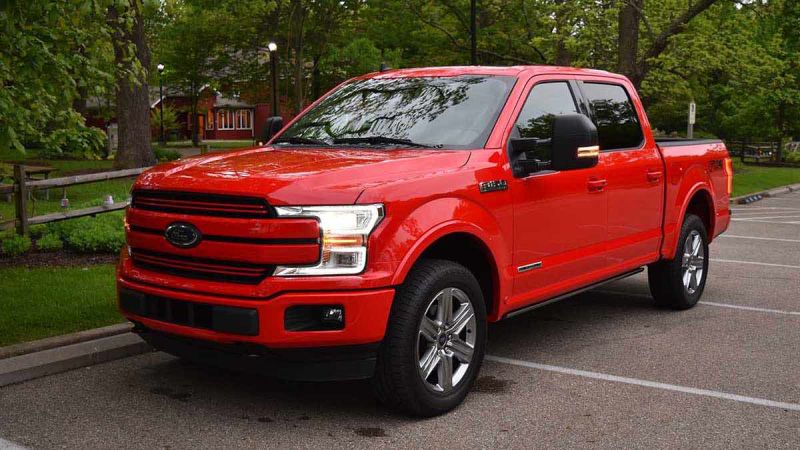





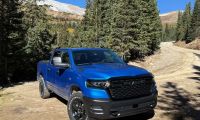


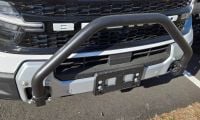
Comments
I have a 2019 Ford ranger 2WD
Permalink
I have a 2019 Ford ranger 2WD. I use it as my work truck and I also work it like a truck. I drive like I have some sense and my average over 54 fill ups is 23.4 mpg. This is the actual mileage verified by the fuelly app. This (like most F150's is also turbo charged and the rule of thumb is, if you drive like an ass, it will suck the gas.
A lot does depend on how you
Permalink
A lot does depend on how you drive it, for sure. That's why these lawsuits never hold up.
I own both a 2020 Ford
Permalink
I own both a 2020 Ford expedition and a 2020 ranger...and a 2017 Ford C-max plugin hybrid.
The C-max gets 40-60 mpg depending how far I drive and how often it is charged.
The ranger gets 17-20 mpg
The expedition gets 15mpg. It can get 30mpg pure flat highway driving, but any kind of start and stopping kills efficiency. And, I'm lucky to get 10mpg towing.
Both the ranger and expedition would have benefited enormously from any kind of electric regenerative braking...even with a small battery just big enough to handle stopping and getting back to 60 mph.
Ford marketed the expedition at 19 combined...so, yes..huge difference than actual performance...but I did know it was going to be a gas guzzler. And, on long trips I get above their advertised freeway mpg.
Its not enough to warrant a lawsuit, but it does mean that epa estimates are pretty much worthless in big vehicles.
I have a 2019 F150 with a 3.5
Permalink
I have a 2019 F150 with a 3.5 EB, I average 23 mpg hwy and better than 18 city, which is better than the EPA ratings. As one other poster stated with a turbo engine sure if you drive it like an ass they suck gas, however drive them with sense they deliver as advertised.
Sounds to us like you're a
Permalink
Sounds to us like you're a Ford man. Get real buddy. If someone says it's supposed to get 20 mpg avg., then it's supposed to get 20 mpg. We are lucky to get 17.0 in our 2020 Ford Explorer ST. Just wished that we had our 207 GMC Acadia back. Window sticker said 20 mpg like the Ford. But we typically got 24-26.
Go sell your Ford products somewhere else.
Interesting comment
Permalink
In reply to Sounds to us like you're a by Milton Mounts,… (not verified)
Interesting comment ironically a quick check of the GMC Acadia on fuelly.com shows most owners average 18-19, the Terrain average on fuelly.com is 25-26, are you sure you didn't have a Terrain? Regardless the Explorer ST is a 400 HP / 415 ft-lb, I imagine it's a hoot to drive however when you see that turbo gauge light up when you shoved your right foot to the floor it's sucking down gas. Being an EB owner, I know they are very capable of delivering mpg as advertised. I also know the power they deliver at your right foot is addictive.
Yes, you have to drive it
Permalink
Yes, you have to drive it fuel efficiently, and what fun is that?
Dear Jimmy,
Permalink
Dear Jimmy,
After reading your article and looking at your lifetime of experience it leaves me with only one thought, how much did FORD actually pay you to take their side on this?
I’m sure eventually you’ll be seeing my review that I’m putting on YouTube -I am actually livid.
I bought my 2019 Ford Ranger XLT expecting it to get wet has been advertised which is nothing and I repeat nothing like what is being advertised therefore it is 100% misleading.
It does not get 22 miles on the road and up to 26-27 or above on the highway whatsoever.
You yourself even state that it gets 19.? Per mile which is still a far cry from the, YES! Miss leading advertisements that are perpetually put out and market it still to get people to buy this vehicle. I am getting 16 miles to the gallon. So Jimmy, well I’m sure your Ford’s best friend – I should be considered that to considering my family for three generations has bought only Ford been a diehard Ford fan and always defended it but this is pretty much over the top at this point and I’m pretty sick of being LIED to, especially at this point in time.
It's funny, I can't win for
Permalink
In reply to Dear Jimmy, by Elizabeth Reynolds (not verified)
It's funny, I can't win for trying. Trust me, Ford does NOT like me. I'm almost blackballed from them for my various stances. I do standby that fuel economy is a very loose term in almost all vehicles, excluding hybrids. Any ICE engine can have a wide range of fuel economy. I don't think most truck owners care about fuel economy as I stated there. As it seems like a big deal to you, I urge you to continue to pursue the issue until you get a resolution.
I call BS on this C&D was
Permalink
In reply to Dear Jimmy, by Elizabeth Reynolds (not verified)
I call it farce on this C&D was able to average 25 in the Ranger and they are known for underachieving epa ratings with everything they drive, being a performance oriented group, that makes sense. FYI: I have an F150 with the 3.5 EB and the lifetime average on the truck is 19, which is mostly around town driving.